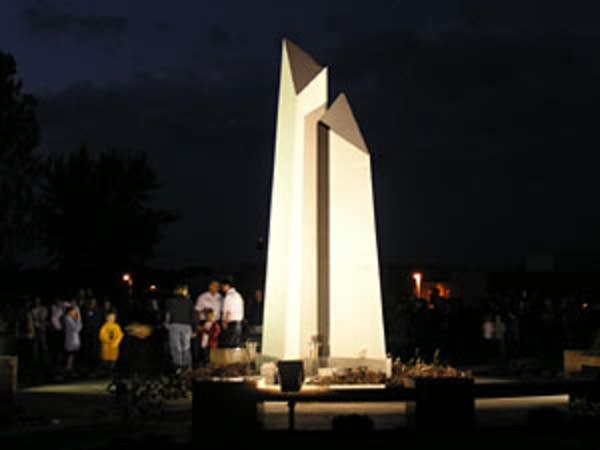Supreme Court upholds conviction of Rocori High School shooter
Go Deeper.
Create an account or log in to save stories.
Like this?
Thanks for liking this story! We have added it to a list of your favorite stories.

(AP) - The Minnesota Supreme Court on Thursday upheld the conviction and life sentence of a teenager who killed two students at Rocori High School, but declined the take up the constitutionality of the state's law for mental illness defenses.
John Jason McLaughlin was 15 when he brought a pistol to the school in Cold Spring on Sept. 24, 2003. Aaron Rollins, 17, died that day. Seth Bartell, 14, was wounded in the head and died 16 days later.
McLaughlin's appeal claimed that the state's rule for insanity defenses is unconstitutional because adolescent brains develop differently than those of adults.
It also claimed the trial judge was wrong to impose back-to-back sentences of life and 12 years in prison instead of allowing McLaughlin to serve the sentences at the same time.
Turn Up Your Support
MPR News helps you turn down the noise and build shared understanding. Turn up your support for this public resource and keep trusted journalism accessible to all.
Minnesota law sets a high bar for insanity defenses. The standard, called the M'Naghten Rule, from an 1843 British case, says only people who don't know right from wrong or who don't understand the nature of their acts can be found not guilty by reason of mental illness.
McLaughlin's appeal argued that it's unconstitutional to apply that rule to adolescents because their brains aren't fully developed in areas related to impulse control, risk assessment, and moral reasoning.
But his appeal was the first time McLaughlin raised that issue, justice Paul H. Anderson wrote. Because of that, the court rejected that appeal without getting into the merits of the state's rule for insanity defenses.
There seemed to be general agreement that McLaughlin had mental problems. Six mental health experts testified at his trial, including three who diagnosed him with paranoid schizophrenia and three who diagnosed him with a major depressive disorder in remission.
Back-to-back life- and 12-year sentences are in line with other similar crimes, Anderson wrote.
"McLaughlin shot two fellow students, one of them (Bartell) twice and at close range. Both students were defenseless. McLaughlin planned and carried out the shootings in a methodical manner, and minutes after the shootings occurred, he acknowledged to (a Bureau of Criminal Apprehension agent) that he knew what he did was wrong," the ruling said.
The ruling also upheld the trial judge's determination that the mental health issues weren't enough to reduce McLaughlin's sentence.
"There was no consensus that McLaughlin frequently suffered delusions and engaged in wholly irrational behavior, despite the broad agreement that McLaughlin's mental health was compromised to some degree," Anderson wrote.
Attorneys for McLaughlin and the state Attorney General's office, which prosecuted the case, did not return phone messages left by The Associated Press.
(Copyright 2007 by The Associated Press. All Rights Reserved.)



